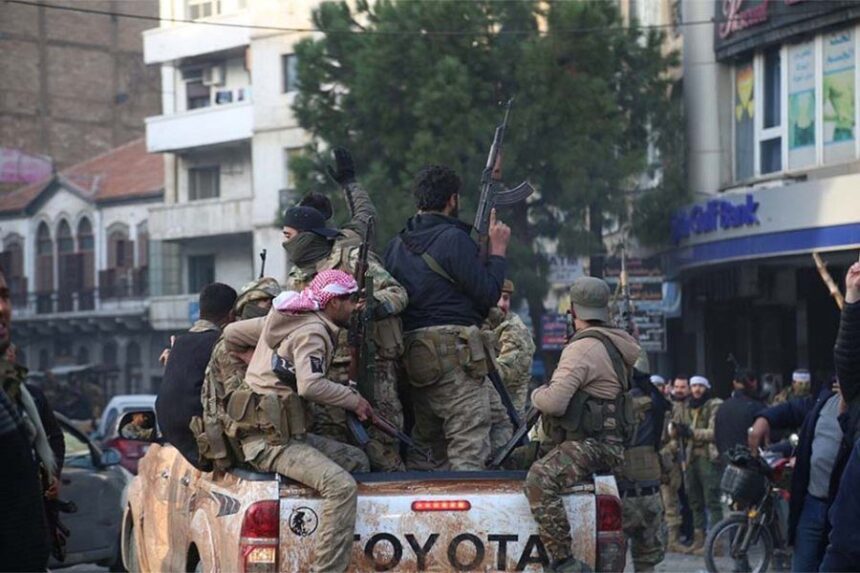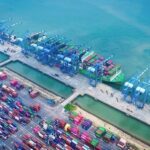December 11, 2024
Manila – The jubilant streets of Damascus are filled with a sense of freedom. Women sing “zaghrouta,” a high-pitched celebratory wail; men chant slogans; and the nation breathes a collective sigh of relief. The fall of Bashar al-Assad and his flight to Moscow marked the end of an era of repression. Yet amid the celebrations, echoes of history remind us that these moments are just the first steps in a difficult journey of transformation.
Assad’s dramatic departure is reminiscent of other tyrants forced into exile: Ferdinand Marcos Sr. fled to Hawaii in 1986 with treasures looted from the Filipino people; Muammar Gaddafi’s tragic death in Libya; The humiliating fall of Saddam Hussein in Iraq. Each fall of a dictator triggers jubilation but also reveals profound challenges that follow. For Syria, these challenges are urgent as the country grapples with the legacy of dictatorship, civil war and external interference.
For more than 50 years, the Assad family has ruled with an iron fist, stifling dissent and maintaining power through a maze of alliances. The civil war that broke out in 2011 triggered a harsher crackdown that led to decades of unimaginable suffering: hundreds of thousands dead and millions more displaced.
The jubilant scenes in Syria echo those of the EDSA People Power Revolution in the Philippines, when citizens took to the streets to overthrow the old Marcos regime. Just as Filipinos destroyed the remnants of the dictator’s rule—smashing statues and reclaiming public space—Syrians are now seizing the opportunity to dislodge symbols of the Assad family’s rule. However, while the Philippines has made a relatively quick transition to democratic rule, Syria’s path is more uncertain.
History offers warnings for Syria. Both Libya and Iraq fell apart after the collapse of their authoritarian regimes and failed to establish stable political orders. These examples highlight the dangers of power vacuums and unbridled factionalism. Syria’s deeply divided opposition, which includes Islamist groups such as Hayat Tahrir al-Sham (HTS) and the Kurdish faction led by the Syrian Democratic Forces, is emblematic of these challenges. While HTS has pledged to embrace inclusivity, it remains burdened by a controversial past with ties to al-Qaeda, casting doubt on its ability to foster unity.
The stakes are further complicated by Syria’s geopolitical importance. Regional powers such as Türkiye, Iran and Israel, as well as global players such as Russia and the United States, are deeply entrenched in the conflict. Israel’s recent occupation of a buffer zone in the Golan Heights, ongoing skirmishes between Turkey and Kurdish forces, Russia’s interest in maintaining influence and U.S. preemptive strikes to prevent the remnants of the Islamic State from hiding weapons are all factors Highlighting the instability of the situation. Any transformation must respond to these external pressures while resolving domestic disagreements.
The country’s ethnic and sectarian divisions, exacerbated by years of war, require sensitive reconciliation efforts. The vast stockpiles of weapons between the factions have raised fears of protracted violence as former allies fighting Assad’s regime could turn on each other. Syria’s infrastructure is in ruins and its oil reserves, controlled by Kurdish forces, remain a contentious issue. International aid and investment are critical for reconstruction, but political instability and mistrust can hinder these efforts.
Despite these challenges, there are reasons to remain cautiously optimistic. Rebel leaders have expressed a commitment to diversity and minority rights, signaling a possible departure from the Assad regime’s xenophobic policies. Despite its complex role in the conflict, Turkey sees stability in Syria as an opportunity to repatriate millions of Syrian refugees. The international community, led by the United Nations, pledged to support a peaceful transition. This external engagement, coupled with lessons learned from other post-conflict transitions, can provide a framework for demilitarization, power-sharing and justice.
The experiences of the Philippines, Libya, and Iraq remind us of the dangers and possibilities inherent in regime change. While the fall of Bashar al-Assad is a victory for the Syrian people, the road ahead requires wisdom, resilience and unity.
In the Edsa People Power Revolution, Filipinos found strength in collective action, the dismantling of military rule, and the restoration of democracy. Likewise, Syrians now have the opportunity to forge a new identity rooted in inclusivity and justice. The fall of Bashar al-Assad is an opportunity for reinvention, but it is also fraught with risk. The lessons of history warn us not to be complacent. Celebrations must give way to dialogue, and euphoria must be tempered by the hard work of nation-building.









